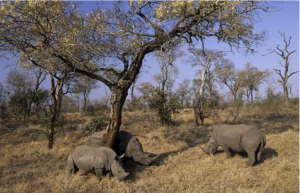Originally published on Daily Maverick.
China has declared it will permit limited trade in rhino and tiger products from farmed animals, for use in research or traditional Chinese medicine. Opponents of legal trade had a collective apoplexy, but their oft-repeated mantras are not supported by fact.
China’s decision to permit limited import, export and domestic trade in rhino and tiger products, provided they are sourced from legal farming operations and used in scientific research or Chinese traditional medicine, caused uproar among green NGOs and the environmental media.
In these pages, Don Pinnock attacks the South African government over its apparent desire for legal international trade in rhino horn, claiming to have detected a conspiracy between Chinese and South African authorities motivated by the sinister machinations of the invisible hand, rather than a bona fideconcern for conservation.
“China’s ‘legal trade’ announcement could sound the death knell for tigers and rhinos,” cried the Environmental Investigation Agency (EIA). Debbie Banks, its Tiger Campaign Leader, warned: “The huge number of tigers held or bred in captivity in China suggests there will be a major explosion in trade – and this can only lead to more tigers being poached in the wild.”
Subscription required to read full article.




